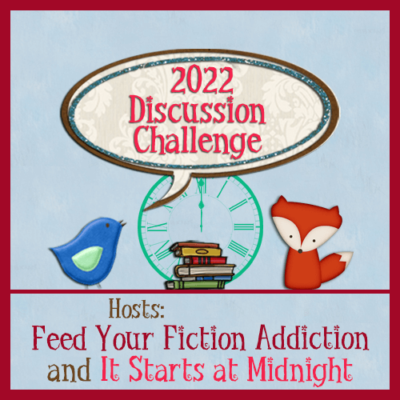
Thanks to these two bloggers for sponsoring the 2022 Blog Discussion Challenge:
- Nicole at Feed Your Fiction Addiction
- Shannon at It Starts at Midnight
Introductory Discussion
June 2022 marked the tenth anniversary of Gillian Flynn’s mega blockbuster novel Gone Girl. This anniversary prompted many looks back at the novel’s significance; for example:
“A master class in marital manipulation, the influence of the novel continues to cascade through the category; to this day, every other thriller is pitched as “Gone Girl meets XYZ.” So many articles have been published to explain its enduring influence—on everything from domestic suspense as a subgenre, feminine rage storylines, and deranged plot twists—that we can lose sight of one important fact: the book holds up; it’s timeless, and as readable now as it was then.”
— Vannessa Cronin, Amazon Editor
And all these discussions made me think back to my own initial reaction to Gone Girl: This novel underlay my recognition of Life Stories in Literature.
A bit of background is necessary here. In 2005 I went back to school because of a vague feeling that there were some things I needed to learn. I had been involved in life writing workshops with older adults, particularly women, and when I started working on my degree in psychology I discovered the emerging area that psychologists call narrative identity theory. As I learned more about this topic, I realized that I was studying life stories because I needed to understand my own. I wrote my dissertation on life stories and got my degree in 2011.
My first literary love has always been fiction. When I read Gone Girl soon after its publication in 2012, I was amazed to see various elements of life story writing working together to build the narrative of Nick and Amy Dunne’s married life.
In 2014, when I began writing about Life Stories in Literature, I explained how Gone Girl pulls together many of the themes that illustrate how narrative identity theory can aid in understanding fiction:
Life Stories in Literature
Themes
identity
family
we are what we remember
inside vs. outside stories
imposters
hidden identities & secrets
trauma
creating/controlling one’s own narrative
cultural appropriation
alternate life options
alternative selves
turning points/life decisions
when/how lives intersect
multiple points of view
rewriting history
change your story, change your life
The more I’ve pursued this approach to literature, the more I’ve come to agree with Cronin’s assessment: “the book holds up; it’s timeless, and as readable now as it was then.”
Study Notes
My Review of Gone Girl (from October 2012)
‘Gone Girl,’ a decade later: How does it read?
Gillian Flynn Is the Real Gone Girl
© 2022 by Mary Daniels Brown

